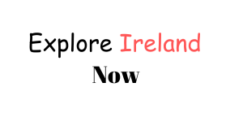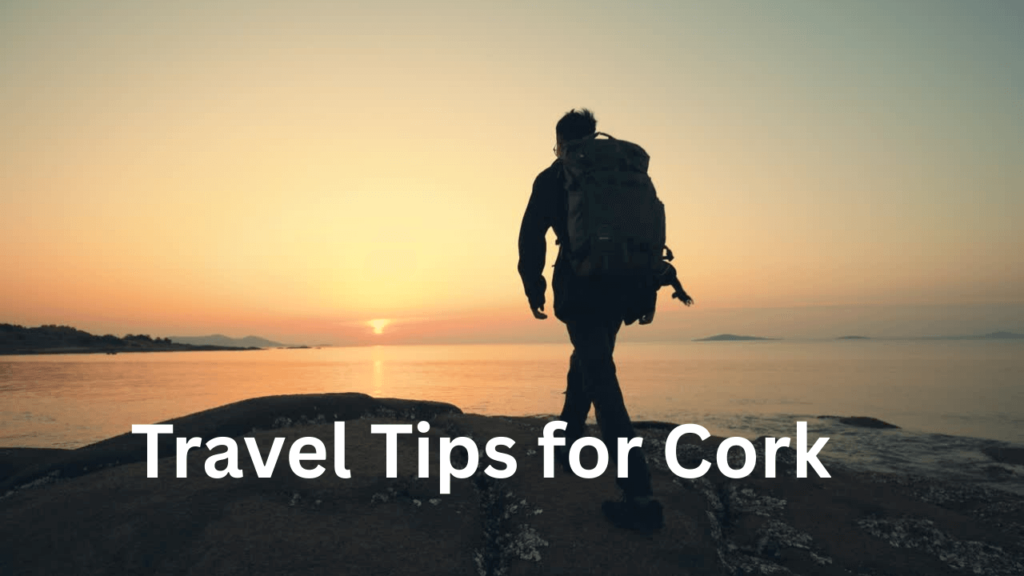When people think of Ireland, Dublin often takes the spotlight. Yet, Cork—the “Rebel County” and Ireland’s second-largest city—offers a unique blend of history, food, culture, and natural beauty that makes it a must-visit destination. Whether you’re strolling through the English Market, driving along the Wild Atlantic Way, or catching a ferry to Spike Island, Cork is brimming with experiences that rival any capital city.
Today, traveling is more intentional. Many visitors want authentic cultural encounters, sustainable tourism, and experiences that feel less commercialized. Cork perfectly fits this modern travel mindset—it’s vibrant yet laid-back, cosmopolitan yet deeply traditional, and rich with stories that date back centuries.
From my own travels in Cork, I’ve found it to be one of the most welcoming places in Ireland. Locals are quick with a smile or recommendation, the food scene is underrated compared to Dublin, and the surrounding landscapes—whether in West Cork or along the southern coastline—are unforgettable.
In this article, I’ll share detailed, research-backed, and personally informed travel tips to help you make the most of your trip to Cork.
Getting to Cork
By Air
Cork Airport (ORK) is Ireland’s second-busiest airport, serving over 2.5 million passengers annually. It connects to major European hubs like London, Amsterdam, and Paris, with seasonal routes to North America. For travelers, flying directly into Cork is often less stressful than Dublin—smaller crowds, faster security checks, and quick transfers into the city (just 15–20 minutes by taxi or bus).
By Train or Bus
If you land in Dublin, Irish Rail offers a direct train from Dublin Heuston Station to Cork’s Kent Station. The journey takes around 2.5 to 3 hours and is one of the most scenic rail routes in Ireland. Bus Éireann and private operators like GoBus also run frequent services, though the road journey typically takes 3.5–4 hours.
Tip: If you plan to explore Ireland beyond Cork, consider renting a car. It gives you the freedom to reach hidden villages, beaches, and castles off the public transport routes.
Best Time to Visit Cork
Ireland’s weather has a reputation for being unpredictable, but Cork is one of the sunnier counties.
- Spring (March–May): Blossoms in Fitzgerald’s Park, fewer crowds, and mild temperatures make this a fantastic season.
- Summer (June–August): The busiest tourist season. Expect lively festivals, long days, and bustling streets.
- Autumn (September–November): A favorite for many travelers—lower prices, crisp weather, and vibrant autumn colors in the countryside.
- Winter (December–February): Quieter, except around Christmas. Some attractions may have limited hours, but the city is charming with festive lights.
Personal experience: I visited Cork in early May, and it was perfect—temperatures hovered around 15°C (59°F), the city felt lively, and day trips to Kinsale and Cobh were less crowded.
Where to Stay in Cork
City Center (For First-Timers)
Staying near St. Patrick’s Street or the River Lee puts you within walking distance of major attractions.
- Luxury: The River Lee Hotel is a stylish riverside property with excellent dining.
- Mid-Range: The Clayton Hotel offers comfortable stays right in the heart of the city.
- Budget: Kinlay House Hostel is a great option for backpackers.
West Cork (For Scenic Getaways)
Base yourself in towns like Clonakilty, Skibbereen, or Bantry if you want dramatic coastlines, artisan food, and charming villages.
Cobh or Kinsale (For History & Food Lovers)
Cobh is steeped in maritime history, while Kinsale is Ireland’s culinary capital, filled with award-winning restaurants.
Top Attractions in Cork
1. The English Market
Cork’s most famous attraction, the English Market, has been operating since 1788. It’s not just a tourist stop; locals shop here for fresh produce, meats, fish, and artisan foods. Stalls like O’Flynn’s Gourmet Sausages or On the Pig’s Back cheese counter are legendary.
2. Blarney Castle & Gardens
Located just 15 minutes from Cork City, Blarney Castle is home to the iconic Blarney Stone. Legend says kissing it grants “the gift of the gab.” The gardens themselves are stunning, especially in spring.
3. Cobh
Once the Titanic’s last port of call, Cobh is a colorful seaside town with a fascinating heritage. The Cobh Heritage Centre tells the story of Irish emigration, while St. Colman’s Cathedral dominates the skyline.
4. Kinsale
Known for its pastel-colored buildings and gourmet food scene, Kinsale is also historically significant—it was the site of the 1601 Battle of Kinsale, a turning point in Irish history.
5. Spike Island
Often called “Ireland’s Alcatraz,” Spike Island has a dark but intriguing history as a fortress and prison. A ferry ride and guided tour bring its stories to life.
6. West Cork’s Beaches
Inchydoney, Barleycove, and Owenahincha are some of Ireland’s most beautiful beaches. Even if the Atlantic is too cold for swimming, the views alone are worth the visit.
Food & Drink in Cork
Cork is often called Ireland’s “food capital,” and with good reason.
- Seafood: West Cork’s coastal towns serve some of the freshest seafood in Ireland. Try the seafood chowder in Kinsale.
- Farm-to-Table: Cork’s rich farmland produces top-quality dairy, beef, and artisan cheeses.
- Pubs: Cozy pubs like Sin É or The Crane Lane are great for live traditional music.
- Coffee & Cafés: Coffee culture has boomed—places like Three Fools Coffee are favorites among locals.
Tip: Don’t miss Murphy’s Irish Stout, brewed in Cork. Many locals prefer it to Guinness.
Transportation in Cork
- Walking: Cork City is compact and walkable.
- Public Transport: Bus Éireann operates reliable bus services within the city and county.
- Driving: Renting a car is highly recommended if you want to explore West Cork, Kinsale, or the Wild Atlantic Way.
- Cycling: Cork has invested in cycling lanes, and bikes are available for rent.
Caution: Roads in rural Cork are often narrow and winding. Take your time when driving.
Cultural Etiquette & Local Insights
- Politeness matters: A simple “thanks a million” goes a long way.
- Pub culture: Ordering at the bar is standard; tipping is appreciated but not obligatory (5–10% is fine).
- Conversation: Corkonians are famously chatty. Don’t be surprised if a local strikes up a friendly conversation in a café or pub.
Festivals & Events in Cork
- Cork Jazz Festival (October): One of Europe’s biggest jazz events.
- Cork Midsummer Festival (June): Showcases contemporary arts, theatre, and dance.
- West Cork Literary Festival (July): Celebrated for its workshops and readings.
- Kinsale Gourmet Festival (October): A food lover’s dream.
Attending a festival gives you a deeper cultural insight and a chance to mingle with locals.
Smart Travel Tips for Visiting Cork
- Pack for all weather: Layering is key—expect sunshine, wind, and rain in the same day.
- Book ahead in summer: Hotels in Kinsale and Cobh fill quickly.
- Eat local: Skip chain restaurants and try local pubs or farmer’s markets.
- Cash vs. Card: Cards are widely accepted, but it’s handy to keep some euros for small towns.
- Travel insurance: Always worth having, especially if renting a car.
- Stay flexible: Weather may alter your plans. Keep backup indoor activities like museums or galleries.
Common Questions Travelers Ask About Cork
Is Cork cheaper than Dublin?
Generally, yes. Accommodation and dining are more affordable, especially outside the city center.
How many days should I spend in Cork?
At least 2–3 days in the city, plus 2–3 more if you want to explore West Cork, Kinsale, and Cobh.
Do I need a car in Cork?
Not for the city, but yes if you want to fully experience the countryside and coastline.
Is Cork safe for tourists?
Yes. Cork is generally very safe, though like any city, it’s best to stay aware in crowded areas at night.
Conclusion: Why Cork Should Be on Your Ireland Itinerary
Cork is more than just a stop on the way to Blarney Castle or the Wild Atlantic Way—it’s a destination in its own right. With its welcoming locals, rich history, thriving food culture, and stunning landscapes, Cork offers the perfect balance between Ireland’s urban charm and rural beauty.
From my own experiences wandering the English Market, chatting with locals in Kinsale pubs, and driving along West Cork’s dramatic coastline, I can confidently say that Cork leaves a lasting impression on travelers.
If you’re planning a trip to Ireland, don’t just stick to Dublin—make time for Cork. It’s a city that rewards curiosity, welcomes visitors with open arms, and showcases the very best of Ireland’s heart and soul.
Have questions about planning your trip to Cork? Drop them in the comments or reach out—I’d love to help you make your Irish adventure unforgettable.

Hi, I’m Tanvir, the founder and author of Explore Ireland Now. With a deep love for Ireland and its rich culture, history, and landscapes, I created this site to share everything that makes this beautiful country worth exploring. Whether you’re a local looking for hidden gems or a traveler planning your next adventure, I provide insightful guides, tips, and recommendations to help you experience Ireland to the fullest.
From stunning landscapes to vibrant cities and quaint villages, Ireland is full of wonders waiting to be discovered. Through my personal experiences and research, I aim to bring you the most up-to-date information and inspiration for your journey.
Thank you for visiting Explore Ireland Now—I hope my content helps you uncover all that this incredible country has to offer! If you have any questions or need travel advice, feel free to reach out.



